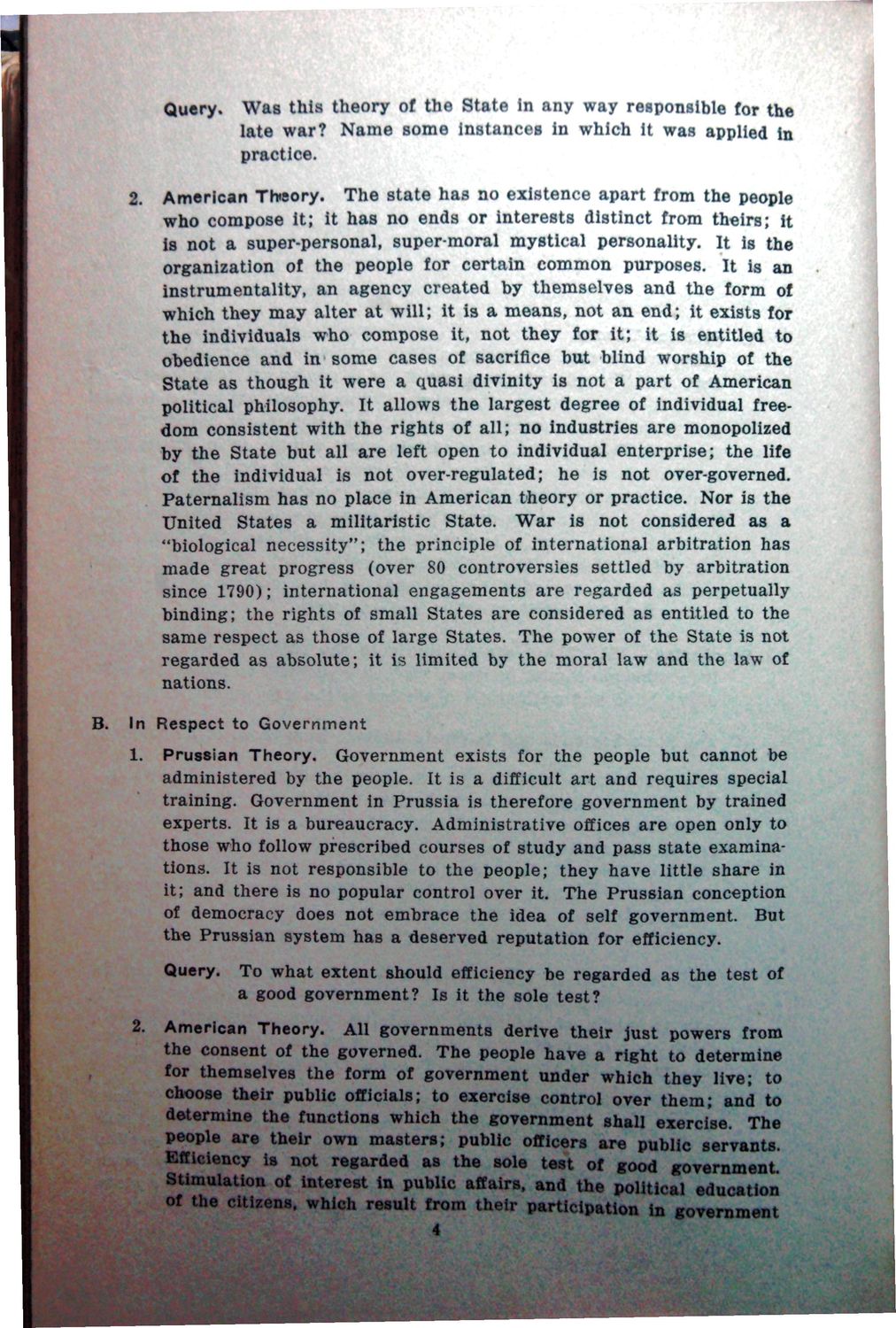| |
| |
Caption: War Publications - WWI Compilation 1923 - Article 48
This is a reduced-resolution page image for fast online browsing.

EXTRACTED TEXT FROM PAGE:
Query. Was this theory of the State in any way responsible for the late war? Name some instances in which it was applied in practice. 2. American Theory. The state has no existence apart from the people who compose it; it has no ends or interests distinct from theirs; it is not a super-personal, super-moral mystical personality. It is the organization of the people for certain common purposes. It is an instrumentality, an agency created by themselves and the form of which they may alter at will; it is a means, not an end; it exists for the individuals who compose it, not they for it; it is entitled to obedience and in some cases of sacrifice but blind worship of the State as though it were a quasi divinity is not a part of American political philosophy. It allows the largest degree of individual freedom consistent with the rights of all; no industries are monopolized by the State but all are left open to individual enterprise; the life of the individual is not over-regulated; he is not over-governed. Paternalism has no place in American theory or practice. Nor is the United States a militaristic State. War is not considered as a "biological necessity"; the principle of international arbitration has made great progress (over 80 controversies settled by arbitration since 1790); international engagements are regarded as perpetually binding; the rights of small States are considered as entitled to the same respect as those of large States. The power of the State is not regarded as absolute; it is limited by the moral law and the law of nations. B. In Respect to Government 1. Prussian Theory. Government exists for the people but cannot be administered by the people. It is a difficult art and requires special training. Government in Prussia is therefore government by trained experts. It is a bureaucracy. Administrative offices are open only to those who follow prescribed courses of study and pass state examinations. It is not responsible to the people; they have little share in it; and there is no popular control over it. The Prussian conception of democracy does not embrace the idea of self government. But the Prussian system has a deserved reputation for efficiency. Query. To what extent should efficiency be regarded as the test of a good government? Is it the sole test? 2. American Theory. All governments derive their just powers from the consent of the governed. The people have a right to determine for themselves the form of government under which they live; to and functions The ir own n Efficiency is not regarded as the sole test of good government. Stimulation of interest in public affairs, and the political education of the citizens, which result from their participation in government 4
| |